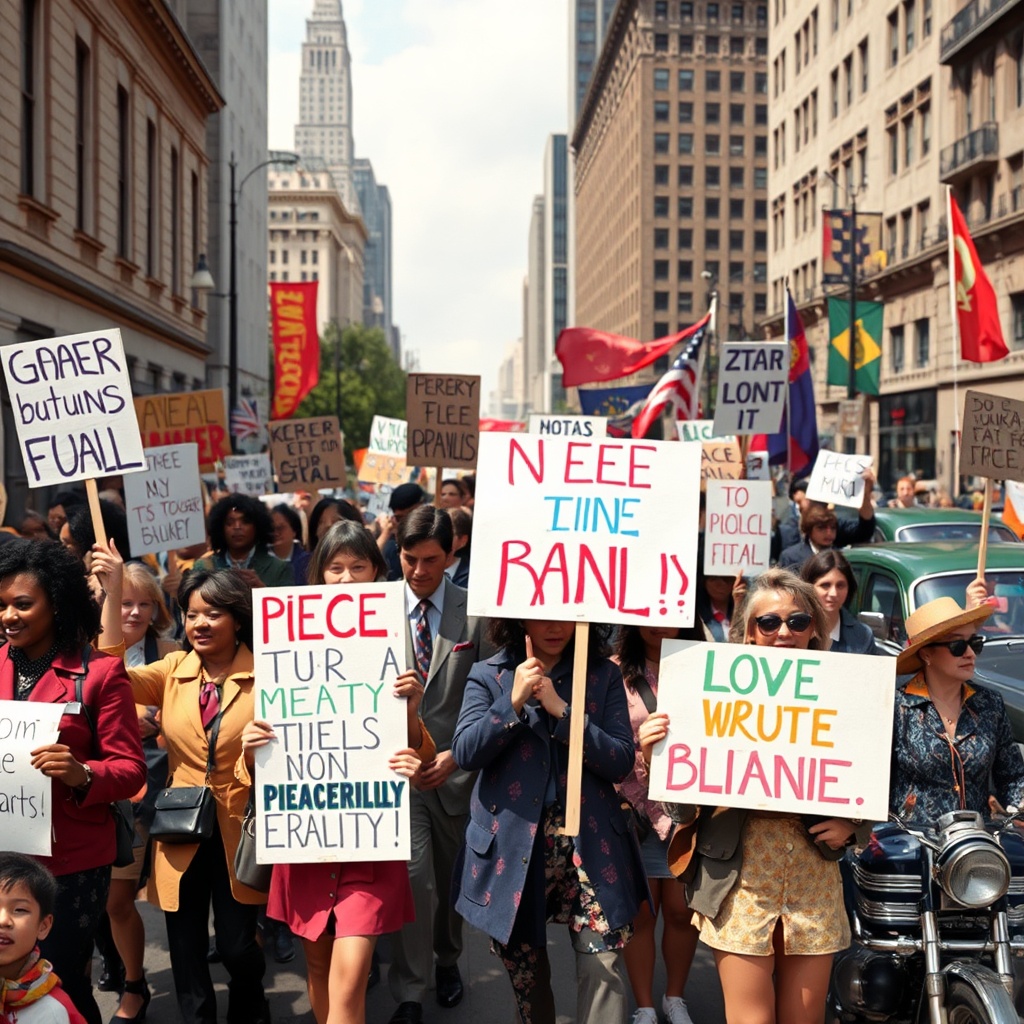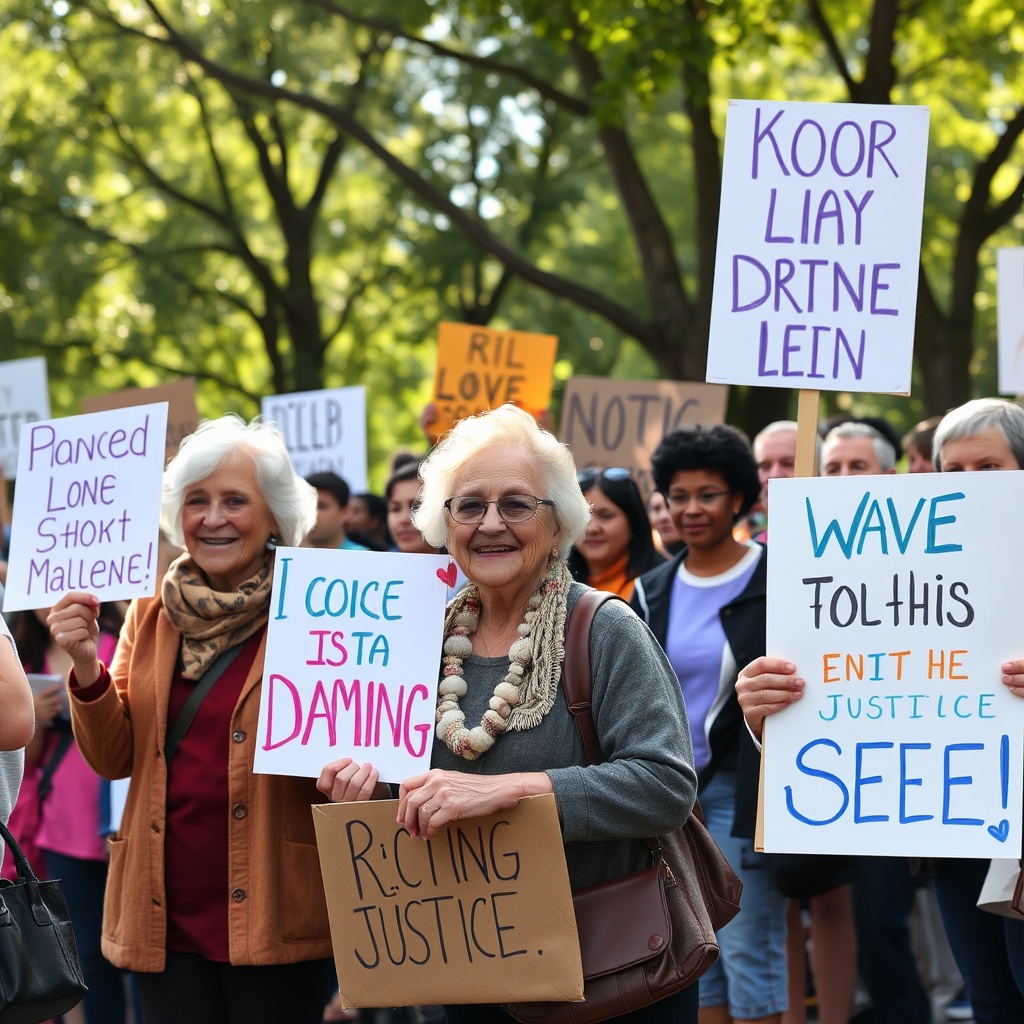Echoes of Dissent: The Revolutionary Spirit of the 1960s

Step back in time to the vibrant decade of the 1960s, a period of profound change and upheaval in America. This was a time when voices of dissent echoed across the nation, challenging the status quo and igniting a revolutionary spirit that would shape the future. One of the most iconic figures of this era was Abbie Hoffman, a passionate activist whose fearless advocacy for social justice still resonates today.
Understanding the Revolutionary Spirit
The 1960s was characterized by a powerful wave of activism, driven by a desire for change. But what fueled this revolutionary spirit? Let’s explore some of the key factors:
- Civil Rights Movement: Efforts to end racial segregation and discrimination.
- Anti-War Protests: Opposition to the Vietnam War, notably the protests organized by Hoffman and others.
- Counterculture Movement: A cultural shift that embraced peace, love, and a rejection of materialism.
- Environmental Awareness: The early roots of the modern environmental movement began to take shape.
Abbie Hoffman: A Catalyst for Change
Abbie Hoffman emerged as a central figure in the 1960s activist revolution. He was known for his charisma, wit, and unconventional methods. His contributions included:
- Yippie Movement: Co-founding the Youth International Party, which aimed to promote peace through direct action.
- Protests and Demonstrations: Organizing events like the 1968 Democratic National Convention protests, where the clash between police and activists was a turning point.
- Writing and Media: Authoring books like Steal This Book, which encouraged readers to challenge societal norms.
The Impact of Dissent
The dissenters of the 1960s, including Hoffman, not only protested against political and social injustices but also inspired generations to come. Their legacy is evident in:
- Modern Activism: Today’s movements draw inspiration from the tactics and spirit of the 1960s.
- Policy Changes: Legislative reforms in civil rights, environmental protections, and anti-war sentiments.
- Cultural Shifts: A greater acceptance of diversity and a push for social equity.
Your Voice Matters
As we reflect on the revolutionary spirit of the 1960s, consider how these lessons apply today. Engage with your community, share your experiences, and advocate for change. Remember, every voice can make a difference. Here are some ways to get involved:
- Join Local Activism: Participate in community groups that resonate with your values.
- Educate Others: Share your knowledge of history and activism with younger generations.
- Stay Informed: Keep up with current events and understand the issues at hand.
The echoes of dissent from the 1960s remind us that change is possible when we stand together. Abbie Hoffman and his contemporaries showed us the power of a fearless voice and the importance of activism in shaping a better future. Let us honor their legacy by continuing to advocate for justice, equality, and peace.
Abbie Hoffman: A Catalyst for Courageous Change

In the vibrant tapestry of the 1960s, one figure stands out as a beacon of audacity and change: Abbie Hoffman. His journey as an activist was not just a series of protests and demonstrations but a bold declaration of the courage to challenge the status quo.
The Spirit of the 1960s
The 1960s were a time of profound transformation, filled with social upheaval, cultural shifts, and a growing sense of discontent among the youth. This was the era of:
- Counterculture Movement: A rebellion against traditional norms and values.
- Civil Rights Movement: A fight for equality and justice.
- Anti-Vietnam War Protests: A passionate opposition to military involvement.
Hoffman emerged as a central figure in these movements, using his voice to advocate for change.
Who Was Abbie Hoffman?
Born in 1936 in Worcester, Massachusetts, Abbie Hoffman was more than just an activist; he was a visionary. He co-founded the Yippies (Youth International Party), which aimed to combine politics with humor and creativity. His approach was unique, making activism accessible and engaging.
The Role of Humor in Activism
Hoffman believed in the power of laughter as a tool for social change. He once famously stated, ‘The only way to bring about change is to make people laugh.’ His performances and protests often included playful, absurd elements, which made serious issues more relatable.
Key Moments in Hoffman’s Activism
Throughout his life, Hoffman participated in many pivotal events. Here are a few highlights:
| Year | Event | Impact |
|---|---|---|
| 1968 | Democratic National Convention Protest | Increased public awareness about the Vietnam War. |
| 1969 | Chicago Eight Trial | Highlighted the government’s response to dissent. |
| 1970 | “Steal This Book” Publication | Provided resources for activists and the counterculture. |
The Legacy of Abbie Hoffman
Hoffman’s legacy extends far beyond the 1960s. His fearless advocacy for social justice, environmentalism, and human rights continues to inspire new generations of activists. He encouraged people to:
- Question Authority: Always seek the truth.
- Engage with Community: Work together for a common cause.
- Embrace Creativity: Use art and humor as tools for change.
Abbie Hoffman embodied the spirit of the 1960s activist revolution—courageous, innovative, and unapologetic. His call for change was not merely a demand; it was an invitation for everyone to join the movement for a better world. As we reflect on his contributions, let us remember that the fight for justice and equality is ongoing, and like Hoffman, we too can be catalysts for courageous change.
Voices of the Voiceless: Activism’s Impact on Society

Throughout history, there have been individuals who dared to stand up for the marginalized, the unheard, and the oppressed. In the 1960s, amidst the waves of social upheaval, Abbie Hoffman emerged as a fearless voice for change. His activism, along with that of many others, shaped a generation and left a lasting mark on society. Let’s explore how these voices of the voiceless made an impact.
The Power of Protest
Activism in the 1960s was characterized by a series of protests aimed at challenging societal norms and injustices. These protests were not just about shouting slogans; they were about:
- Engaging the Community: Activists worked to involve people from all walks of life.
- Creating Awareness: They shone a light on issues like civil rights, the Vietnam War, and poverty.
- Mobilizing Action: They inspired individuals to take part in marches, sit-ins, and demonstrations.
Can you recall any protests from your past? How did they make you feel?
Voices that Resonate
Abbie Hoffman and his contemporaries used their voices to resonate with the struggles of the common people. By amplifying the voices of the voiceless, they brought attention to issues that had long been ignored. Hoffman famously said, “The time has come to put an end to the 1960s.” This was more than just a statement; it was a call to action.
Key Movements and Their Impact
Several significant movements emerged during this time, each contributing to the fabric of society:
- Civil Rights Movement: Fought for racial equality and justice.
- Anti-War Movement: Opposed the Vietnam War and advocated for peace.
- Women’s Liberation: Sought equality and rights for women.
These movements paved the way for modern activism. How do you think these movements have shaped today’s society?
Legacy of Change
The impact of 1960s activism can still be felt today. The legislation passed, the societal shifts, and the cultural changes all stem from the fearless voices of that era. Activists like Hoffman taught us that:
- Every voice matters: Your voice can inspire change.
- Community is crucial: Together, we can achieve more than we can alone.
- Perseverance pays off: Change often takes time but is worth the effort.
In what ways do you think you can still make your voice heard today?
The fearless voices of the 1960s, epitomized by figures like Abbie Hoffman, remind us of the power of activism. Their dedication to advocating for the voiceless transformed society and continues to inspire new generations of activists. As we reflect on their contributions, let us remember that the fight for justice and equality is ongoing. What steps will you take to ensure that the voices of the voiceless are heard?
The Power of Protest: How Hoffman Ignited a Generation
Imagine a time when voices rose in unison, when the air was thick with the scent of change, and when every protest sign carried the weight of hope. This was the 1960s, a decade marked by fervent activism and a quest for justice, and at the heart of it all was a man named Abbie Hoffman.
Hoffman was not just a figure of his time; he was a catalyst. His antics were both theatrical and impactful, drawing attention to causes that resonated deeply with the American public. From the streets of Chicago to the halls of Congress, Hoffman’s voice echoed the frustrations of a generation.
Why Protest Matters
Protests are not merely demonstrations of anger; they are powerful expressions of collective frustration and desire for change. Hoffman understood this well. Through his organizing skills, he transformed protests into spectacles that captured the media’s attention and ignited public discourse.
Hoffman’s Methods: A Mix of Humor and Seriousness
One of Hoffman’s unique qualities was his ability to weave humor into serious activism. He famously staged a “Yippie” (Youth International Party) protest during the 1968 Democratic National Convention, where he encouraged participants to carry flowers rather than weapons. This blend of joy and defiance not only disarmed foes but also drew in crowds who were curious about his unconventional tactics.
A Call to Action
For those who remember the fervor of those days, think back—how did Hoffman’s words resonate with you? Did his calls for change inspire action in your community? His speeches often ignited passion, urging young people to stand up and be counted. “The time is now,” he would say, emphasizing the urgency of the moment.
Legacy of a Generation
Hoffman’s impact extends beyond the 1960s. His approach to activism paved the way for future generations, showing that protest could be both effective and engaging. Today, as we reflect on his legacy, we can see how the seeds of change he planted have blossomed into movements that continue to fight for justice.
Reflecting on Change
As we ponder the role of protest in our lives today, let us ask ourselves: How can we carry forward the fearless spirit of Abbie Hoffman? Are we willing to raise our voices for the causes we believe in? Remember, every voice counts in the symphony of change.
Unyielding Resolve: The Legacy of 1960s Activism
Understanding the Era
The 1960s were a time of profound social and political upheaval. It was an era marked by civil rights movements, anti-war protests, and a fervent demand for change. Activists like Abbie Hoffman emerged as symbols of this revolution, using their voices to challenge the status quo.
Hoffman was not just an activist; he was a master of communication and a strategist. His ability to engage and inspire was pivotal. Through methods that included theatrical protests and humor, he managed to capture the attention of the public and the media.
The Unyielding Spirit of the Movement
Activism in the 1960s was characterized by an unyielding resolve. The movements were fueled by a desire for justice and equality. Key aspects included:
- Grassroots Organizing: Local communities took charge, leading to nationwide movements.
- Coalition Building: Different groups united for common causes, amplifying their impact.
- Creative Protest: Demonstrations often included art, music, and performance to convey messages.
Enduring Legacy
The legacy of 1960s activism is still felt today. It laid the groundwork for future generations to continue fighting for justice. Consider how:
- Social Movements: Today’s movements for climate change and social justice draw inspiration from the past.
- Political Engagement: More individuals are participating in politics, driven by the lessons of activism.
- Cultural Shifts: The values of equality and justice have permeated various aspects of society.
Reflections and Conversations
As we reflect on this transformative time, think about how activism has shaped your life. What changes have you witnessed? Engage with others to share stories and insights about this impactful era.
